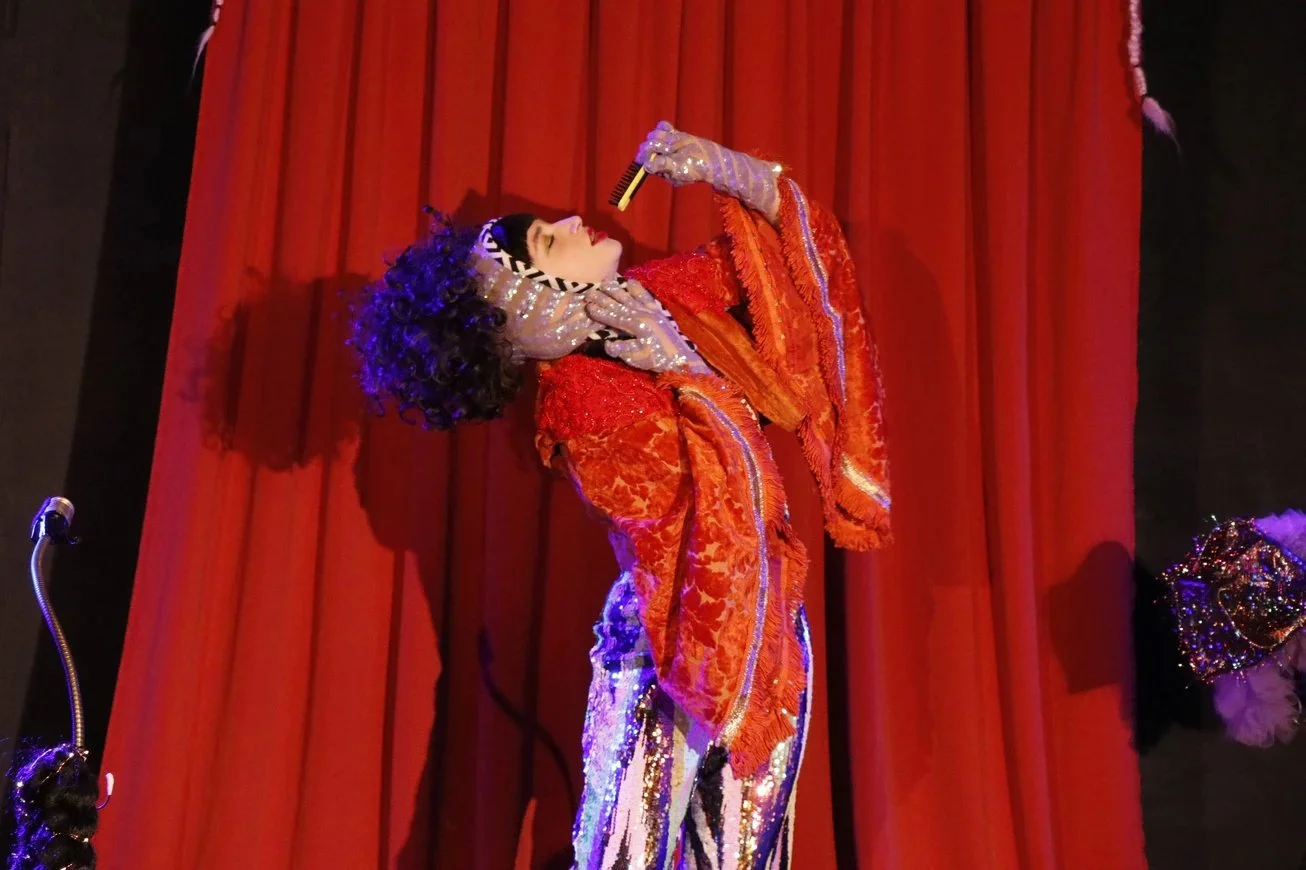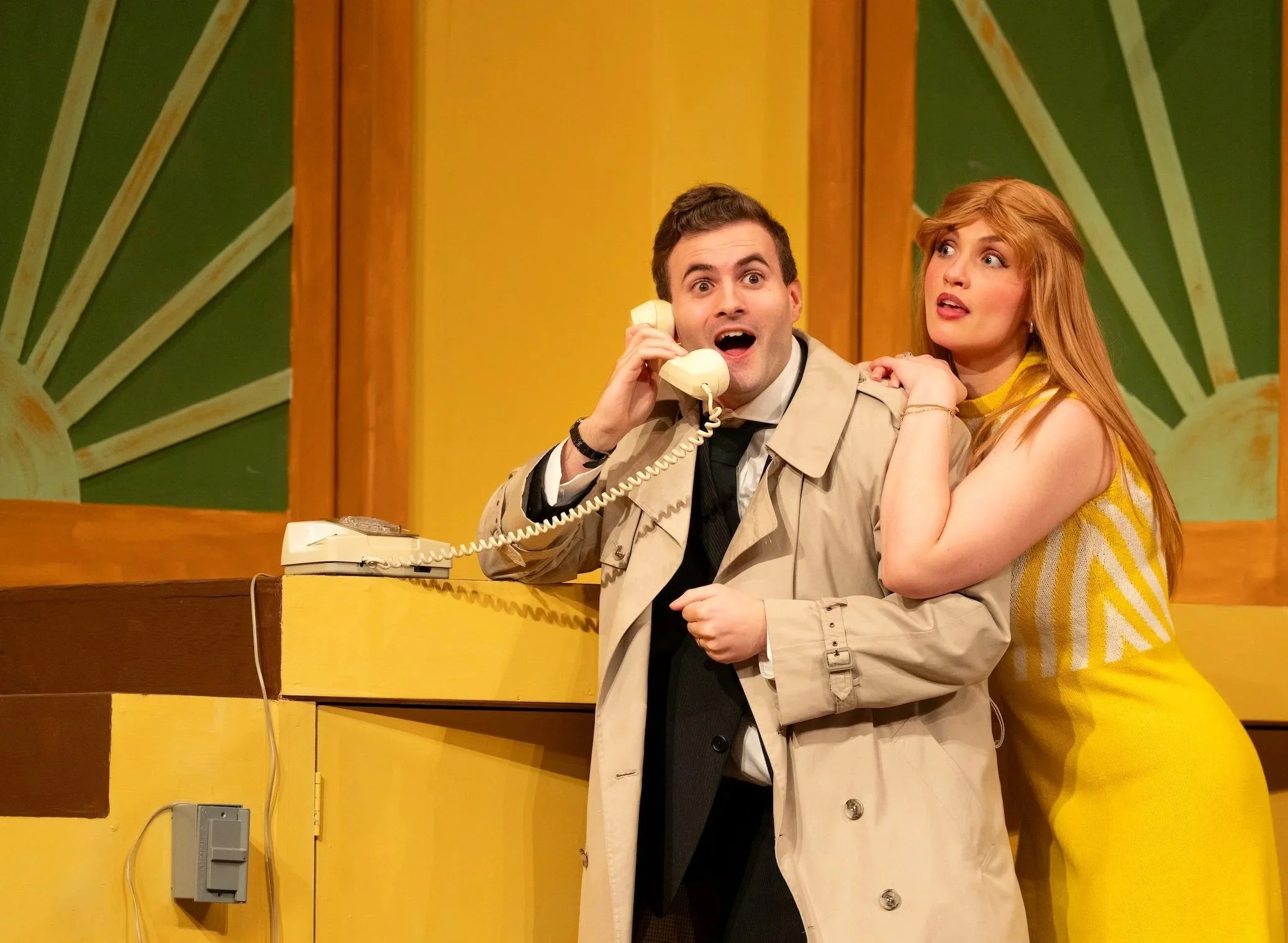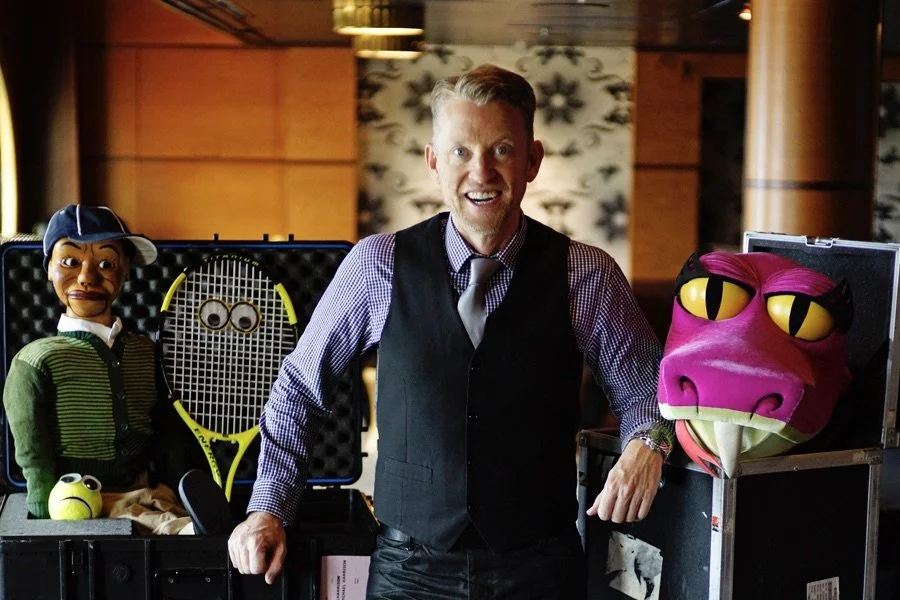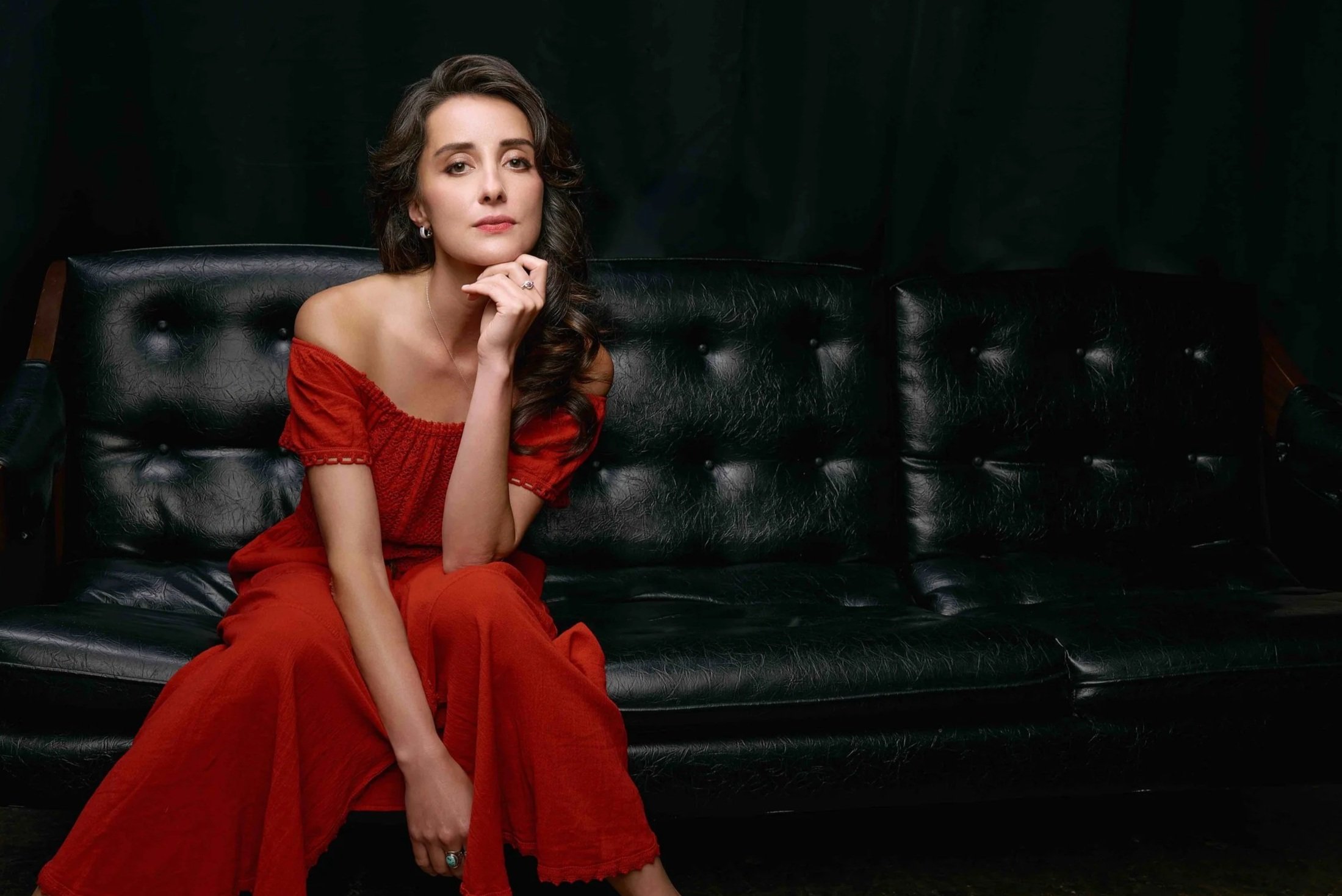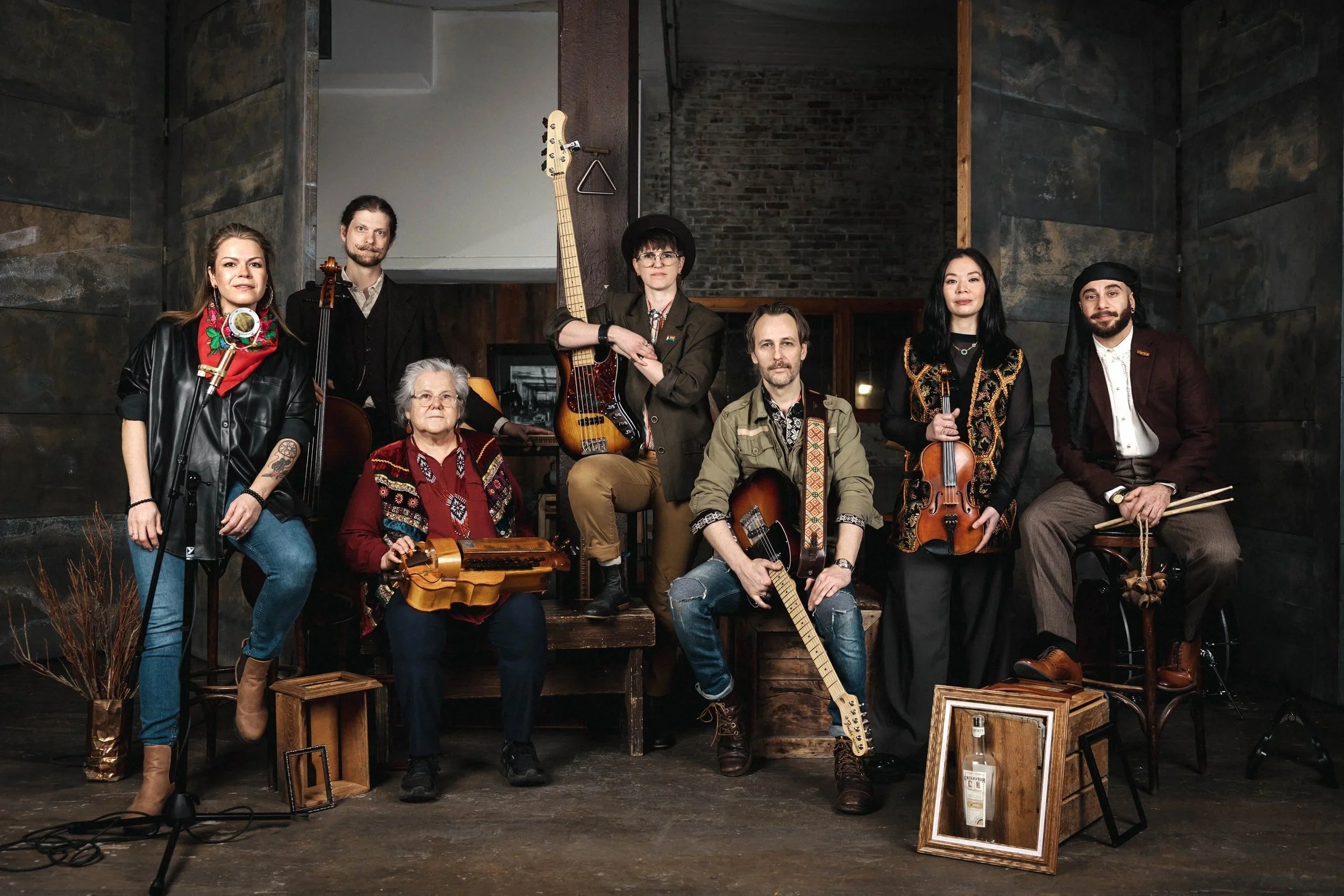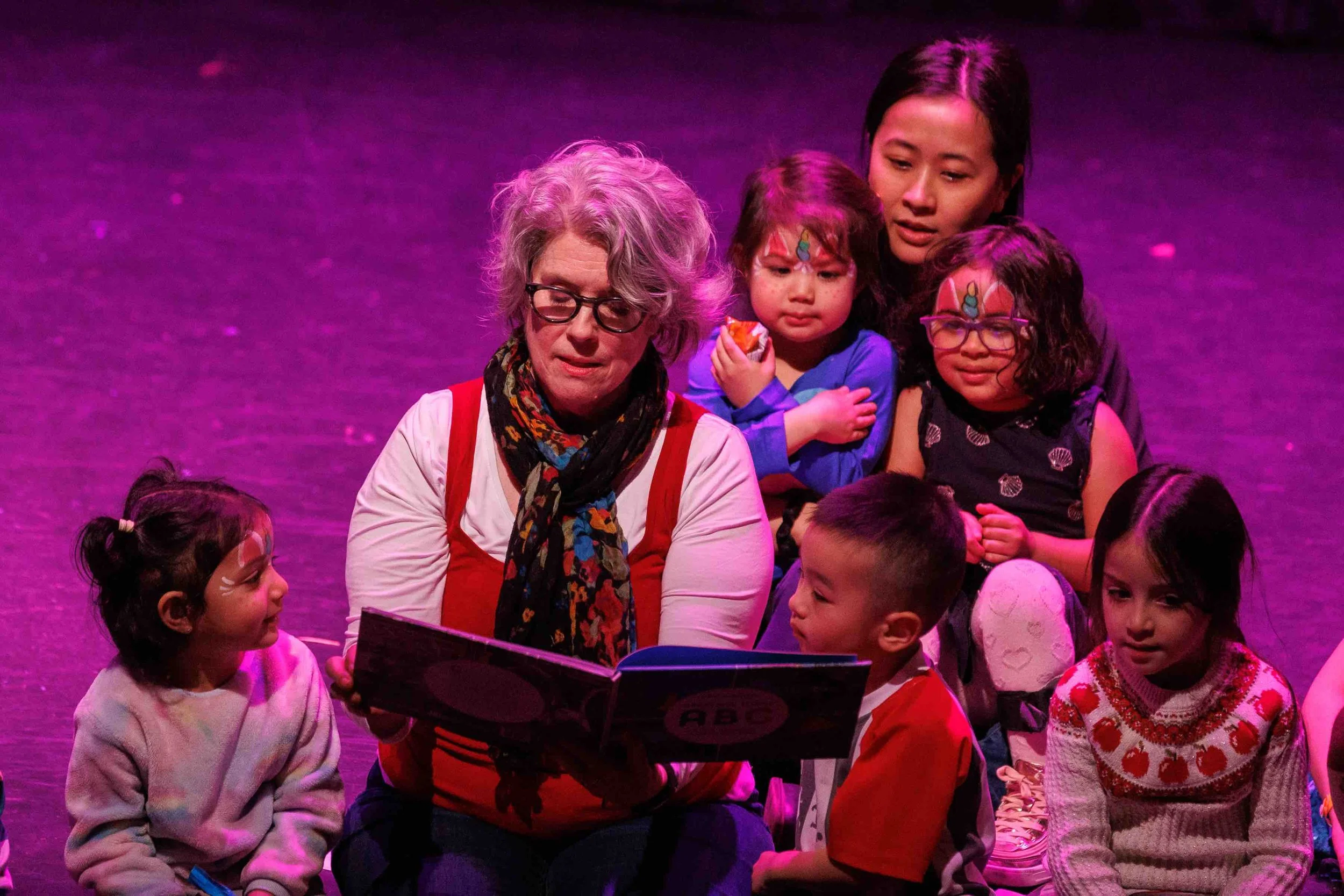Orgasms, mythology, and more in feminist shows at this year's Vancouver Fringe Festival
MONSTER, The Holy O, and PUFFY HAIR centre female-identifying leads in comedic yet refreshingly vulnerable productions
The Holy O. Photo by Ray Kuglar
The Vancouver Fringe Festival takes place from September 7 to 17 at various venues on and around Granville Island
WHAT DEFINES A FEMINIST theatre production? There isn’t really a straightforward answer.
In its simplest form, a feminist show might be one that centres a female-identifying main character; or one with a plotline that offers compassion towards a hurdle that many women face. In the case of this year’s Vancouver Fringe Festival, it’s plays about anything from bad hair days to the holy grail of orgasms.
Lauren Hance’s The Holy O explores the long-lasting effects of purity culture and poorly construed theology on women’s sexual pleasure. Direct Theatre Collective’s MONSTER unpacks Medusa’s innermost character traits behind her misunderstood legacy as a rage-filled, man-hating woman. And Zoë Geltman’s PUFFY HAIR addresses a woman’s vulnerabilities (including body dysmorphia, gastrointestinal turbulence, and her relationship with the male gaze) head-on.
Discussing those kinds of topics in theatre is important, especially in an era where feminism often gets a bad rap. In a 2020 Pew Research Center poll, 45 percent of U.S. adults surveyed agreed that feminism is polarizing, and a further 30 percent said it’s outdated. And yet, 61 percent of U.S. women still identify with the word “feminist”.
Even without defining these Fringe shows as feminist, they contribute much-needed value to the theatre space as productions that star strong female-identifying leads. Stir talked to some of the artists behind the productions.
The Holy O. Photo by Jonathan Hance
Orgasms: A religious experience
For many folks, sorting through clothes is an hours-long emotional ordeal—you start by trying on one well-worn blouse, and suddenly a flood of memories come rushing back.
Lauren Hance allows that trope to move the plot along in her one-woman show The Holy O, which the Houston, Texas-based theatre artist is touring to North America for the first time at the Vancouver Fringe Festival. The audience gets to help decide which clothes Vera, the production’s main character, should keep or toss—except each piece of clothing Vera pulls out tells the story of a different person in her life.
While every anecdote is unique, they find common ground in exploring the intersection between spirituality and sexuality. Hance has a Master’s degree in theology, arts, and culture, and while earning it, she wrote a research paper titled “How Trinitarian Unity Embraces the Female Orgasm as a Means to Marital Oneness.” This line of thought formed the The Holy O’s beginnings.
“They’re kind of more nuanced experiences of sexuality,” says Hance of the stories in the show. Some are from her own personal journey, while others are dramatized versions of different women’s experiences, which she heard through dozens of interviews.
Lauren Hance.
“Because, you know, there’s horror stories from purity culture, and horror stories from abusive relationships, or husbands pressuring wives to have sex—and that really just isn’t my story,” she says. “My husband’s a really great guy. We just had some really bad theology that we pushed into, and it messed us up. And that’s nuanced, right? And we don’t talk about that a lot.”
In The Holy O, Vera decides whether or not to become a Catholic nun; but first she has to deal with her aversion toward celibacy and the onset of rapturous prayers. Hance says she based this concept on Saint Teresa of Ávila, who had rapture-like prayers she felt resembled the description of an orgasm. Hance was intrigued by the idea that female pleasure could be a reaction to an intimate relationship with God.
“I grew up in the ’90s, when I would say purity culture was at its high point. It was just... It was alive and well,” says Hance with a bittersweet chuckle. “And I mean, not only within the church subculture or the Christian subculture. I would say I’ve talked to a lot of people, even outside of the church, that it just impacted—in making women responsible a lot for the sexuality of humanity, and equating our purity with our sexuality, which shouldn’t be equated.”
It’s true that purity culture was abundant at the time. In 1995, U.S.-based Christian organization Silver Ring Thing (which revamped itself as Unaltered Ministries in 2019) was founded. By handing out purity rings, offering parent training, and hosting over 1,400 events worldwide, they promulgated support of abstinence before marriage, encouraging sexual purity and integrity.
Purity pledges were also common, right along with teen purity balls (father-daughter dances celebrating virginity until marriage). All of that was likely a reaction to current events in the U.S.; according to the CDC, teen pregnancy reached an all-time high by 1991, and AIDS was the number-one cause of death for men ages 25 to 44 by 1992.
The effects of purity culture stayed with Hance for quite some time. “I got married very young,” she shares. “We were about 12 to 15 years into our marriage, and things weren’t right in the bedroom. I started going to counselling, and realized that I was kind of living a life of restricting my body and restricting sexuality.
“I believe part of our creative being is sexuality, and how we experience love, and how we experience each other, and even how we experience God. It’s not the only way, but it is one way. And when you restrict that, it kind of messes you up. It does a lot of damage.”
Along with helping women reclaim a healthy grasp on sexuality within theology, Hance says that the production side of The Holy O is structured to support motherhood. Hance and director-developer Amelia Peterson are both moms, which Hance finds is intrinsically rooted in female empowerment. The result is a deeply thought-out, patiently crafted story. In coming from a place of maternal love, Hance strives to offer the same vibe.
“I want to make you laugh, I want to make you cry, and everything in between—I want you to feel the gamut of emotions,” shares Hance. “But moreso, I want people to feel seen, and known, and loved. I want them to feel less alone in the world. I want them to see themselves in the stories, or connect with those stories. Because when you connect with those stories, then you just don’t feel so alone.
“I just want to create a space that feels safe,” she concludes; “Like a big, warm hug.”
Florence Reiher (left) and Jill Raymond rehearsing MONSTER. Photo by John Prowse
Monsters have feelings, too
Most people know one iteration or another of Medusa: a human-turned-gorgon with snakes for hair, whose steely gaze turns men to stone.
Woven from this age-old myth emerges MONSTER, a dramedy musical from Direct Theatre Collective that sheds new light on Medusa’s often-overlooked backstory. The show’s co-creators, theatre artist Jill Raymond and actor-musician Florence Reiher, sat down with Stir over a Zoom call to chat about its upcoming world premiere at the Vancouver Fringe Festival.
“Early on I had this thought of like, what if Medusa’s main crime in life was just that she was a woman who just wanted to be left the fuck alone?” says Raymond. “She didn’t want to get married. She didn’t want to fall into these societal norms that are placed on us. So in the end, she gets her wish—but it’s not the same now, because how she got there was not of her choosing.”
MONSTER is the first musical created by Direct Theatre Collective. Reiher, who wrote a one-woman autobiographical-style musical back in 2017, composed the show’s piano-based tunes. Raymond developed the plot alongside her, offering suggestions on melodies.
The resulting production is a feminist hurrah—MONSTER centres a female-presenting lead character (and a diverse, mainly female-presenting supporting cast), which Raymond and Reiher agree is a much-needed breath of fresh air.
“I think we’re moving forward in this way, but there is still so much media that is centred around the male gaze, and male-presenting characters,” says Reiher. “I’ve always found that if I’ve ever auditioned for a musical and I’m looking for songs, there’s so many songs about men. And when you see posts for auditions for plays and musicals, there’s a lot of male roles.”
Raymond jumps in: “Adding onto that, Florence, when you are looking for female roles in musicals, there are three tropes: there’s the ingénue, the beautiful one that’s the love interest; the funny, sidekick comic relief character; or the old, wise lady. And it’s so boring as performers. It’s irritating to watch as AFAB or female-presenting people. It’s like, why can there not be more depth and range to what’s available to us?”
Originally from England, Raymond founded Direct Theatre Collective in 2018 with the mission of developing work that evokes change. Their inaugural production HYSTERIA premiered at the Vancouver Fringe Festival back in 2018, winning the Joanna Maratta Award and Mollie Bradley Award; created in the wake of the #MeToo movement, the play examines female empowerment, advancing technology, and sexual politics, while emphasizing the importance of community for sexual assault survivors.
That same brand of female empowerment carries into MONSTER. Reiher says she first remembers learning of Medusa from stereotype-ridden commercials during her childhood. Much of the media created about Medusa often oversimplifies her to a woman who used to be beautiful, but then became an angry monster.
That’s why Raymond and Reiher take such pride in presenting this version of Medusa as a dynamic, complex femme character. The show is delivered with Direct Theatre Company’s signature dose of humour that weighs emotionally heavy when audiences least expect it.
“Florence and I are both incredibly strong women with incredibly strong opinions on things,” says Raymond. “So I think that filters into the work. It’s very hard to separate the art from the artists.”
PUFFY HAIR. Photo by Kevin Frest
Emotional vulnerability with a side of gastrointestinal turbulence
Zoë Geltman’s experimental standup-comedy production PUFFY HAIR is headed to the Vancouver Fringe Festival this year, and her long-standing friendship with the show’s director, Julia Sirna-Frest, is a key component in how it came to fruition.
The pair first met over a decade ago, while working at a preschool in Brooklyn, New York (Geltman was at the front desk; Sirna-Frest was after-school director). When Geltman had the opportunity to create a small theatre piece on the Lower East Side, she asked Sirna-Frest if she would direct the show—and they’ve been friends and artistic soulmates ever since.
Their latest piece together, PUFFY HAIR (written and performed solo by Geltman), unleashes the cathartic rage of letting go. Geltman takes the audience on a conversational journey spanning gastrointestinal turbulence, her tumultuous relationship with the male gaze, and the woes of body dysmorphia, all while garnering laughs. She’s an open book on stage, and no topic is off-limits.
“Talking about, as a woman, still caring about and valuing how I look, and how other people look—it feels like you’re not supposed to do that, you’re not allowed to talk about that,” shares Geltman. “Because it’s either like you have to unquestioningly accept the worship of thinness, or you’re in the body-positivity movement; which then it’s prescriptive, because you have to love your body. So it’s just kind of chafing against these power structures. And I hope people can relate to actually pointing these things out.”
Zoë Geltman (left) and Julia Sirna-Frest. Photo by Sammy Tunis
Geltman’s background lies in the pocket of experimental theatre; she delivered monologues while hanging onto a ceiling-suspended rope net in William Burke’s PIONEERS! #goforth, and she co-starred alongside a human in a dog costume for Two Headed Rep’s Reno & Moll, an existential piece about a children’s TV show.
So while PUFFY HAIR exists in the realm of standup comedy, Geltman notes that it’s infused with the much-needed theatricality that characterizes her work.
“She has a real Carol Channing-Joan Rivers-Liza Minnelli thing happening,” says Sirna-Frest. “It’s like a Vaudeville person showed up to do standup comedy in 2023.”
Both Geltman and Sirna-Frest say that PUFFY HAIR stems from a lifelong battle of tamping down emotions. It’s a habit that they (along with many other women, notes Geltman) are all-too familiar with. Getting those feelings outside of herself, shares Geltman, is a key process that lends vulnerability and relatability to the show.
PUFFY HAIR centres a female-identifying lead character, establishing her thoughts, feelings, and emotions as valid and socially acceptable to share. So, the question must be asked whether Geltman considers it a feminist show.
“I think ‘feminist’ and ‘feminism’ are sort of loaded words. But the short answer is yes, I do think of it that way,” says Geltman.
When asked why she believes feminism has become a loaded word, Sirna-Frest jumps in: “You know it really is so strange, cause it’s such a simple answer. It’s just equal rights. But it’s been taken in all these different places, like, ‘Oh, if you’re a feminist, you hate men.’”
Geltman adds, “Maybe it’s just the way that I’m interpreting it, but it feels like it doesn’t allow for questioning or nuance in how you feel about being a woman, or a person in a female-identifying body. If you have any sense of ambivalence, or self-loathing, it’s like, ‘Oh, well, you’re not a good feminist then.’ But it’s like, ‘Well, no, yes I am.’”
In PUFFY HAIR, Geltman openly expresses those feelings of questioning, self-loathing, and ambivalence. Using the show as a platform to convey what she believes the feminist movement lacks is conceivably the most feminist move Geltman could make.
But PUFFY HAIR delivers more than just dialogue; it’s also an impressive full-body feat.
“It is the most athletic performance,” teases Sirna-Frest. “First of all, it’s 15 pages of solid text, single space, that she’s just delivering at you. But we also have her doing the hula hoop. She does frickin’ push ups. She does a handstand. It’s this crazy, like, mouth gymnastics, and also body gymnastics. And she’s wearing 20 wigs, and a sequined jumpsuit.”






